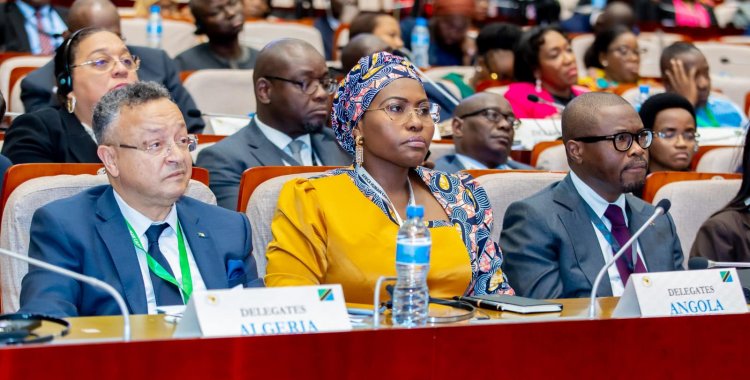When participating in one of the panels of the African Summit on Human Capital 2023, the minister "highlighted the implementation of the Children's Vaccination Plan which, from 2017 to 2023, allowed the immunization of 4.6 million children with different vaccines", says a statement from the Government, to which VerAngola had access.
Still in the field of health, Dalva Ringote informed that the Ministry of Health "has been working hard to guarantee the reduction of HIV-AIDS contamination from mothers to children".
On the occasion, she also mentioned the program "Nascer Livre para Brilhar", promoted by the first lady of the Republic. "We designed a program that is promoted by the first lady of Angola, Nascer Livre para Brilhar, which is a fantastic program. Since 2018, it has recorded a 15 percent reduction in infected women. We have more children being born without HIV-AIDS, which is fantastic for our country", she said, quoted in the note.
Dalva Ringote also said that the country, within the scope of the National Development Plan, "has chosen human capital as one of the fundamental pillars for economic diversification".
The minister "defended that, for the diversification of the economy, it is imperative to have young people with the necessary skills and abilities to meet the needs that the country faces in the context of its positioning at a regional and global level", reads the note.
The minister also highlighted the energy sector, and for her it is not possible to talk about development without energy, "a fact that leads the Angolan Government to invest, currently, in the energy sector to guarantee that families in rural areas, particularly women and young people, have access to energy and, consequently, to education".
The investment in that area enabled Angola to reach "an installed energy capacity of 6.2 gigawatts, of which 62 percent are clean energies, corresponding to 59 percent of hydropower and four percent of wind energy," said the minister, quoted in the communiqué.
According to Dalva Ringote, the National Development Plan for the electricity sector has planned to increase power, considering that the "energy transition is a fundamental factor for the development of the country".
Dalva Ringote also pointed out that, with a view to ensuring employment and increasing human capital, the Government invested in the technological domain, by launching Angosat-2.
"We have Angosat-2, which is an Angolan satellite. Therefore, of national domain, which has the capacity to provide 13 angles so that women in rural areas, youth, can use technology as a tool to support the development of our country," she said, quoted in the note.
With regard to training, the minister mentioned the Government's scholarship programme, which has been providing young people with access to the best higher education establishments in the world.
"We think that with this set of initiatives, in education, in higher education, in renewable energies, as well as in infrastructures, we can effectively associate youth, guarantee that they can, with all the valences, with all the skills and competences, respond to our country's need for development and economic growth", added Dalva Ringote.
It should be noted that the African Summit on Human Capital began this Tuesday, in Tanzania. The event is promoted by Tanzania, in partnership with the World Bank Group, and has the motto "Accelerating economic growth in Africa: increasing the productivity of young people, improving learning and skills".
According to another government note, to which VerAngola had access, for two days, the event will address matters such as the "Impact of the crisis on human capital", "Importance of nutrition for human capital", "Investing in human capital", "The science behind human capital", and "Requalification and qualification for the jobs of the future".
The country marks its presence at the event with a delegation led by Dalva Ringote. According to the statement, the delegation is also composed of the "Minister of Public Administration, Labor and Social Security, Teresa Rodrigues Dias, and by the Secretaries of State for Budget and Public Investment, Juciene de Sousa, for Planning, Milton dos Santos Reis, and for Youth, Francisco Boaventura Chitapa".







